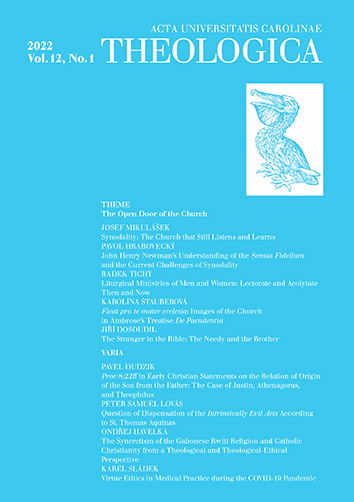Question of Dispensation of the Intrinsically Evil Acts According to St. Thomas Aquinas
Question of Dispensation of the Intrinsically Evil Acts According to St. Thomas Aquinas
Author(s): Peter Samuel LovásSubject(s): Theology and Religion
Published by: Univerzita Karlova v Praze, Nakladatelství Karolinum
Keywords: Human action; Intrinsically evil; Dispensation; Lying; Thomas Aquinas; Veritatis splendor
Summary/Abstract: If some action is intrinsically evil, it lacks all moral goodness. This act keeps some physical goodness in the sense that it is real, but it suffers from a real deficient moral disorder. It is morally evil in its essence because its moral privation shapes its objective character. Its disorder defines the act at its core. Such an act is not only affected by evil; it is constituted by evil. The evil shapes the formality and the identity of the action itself. St. Thomas Aquinas argues that these actions cannot be rightly performed under any circumstances and for no end. However, could Almighty God in some specific situations give a dispensation from the negative absolute prohibition? Some biblical cases seem to support this explanation. In many morally difficult situations, some kind of mental reservation, or dispensation that would render an otherwise evil act at least morally permissible, might be very convenient. Aquinas explains that God cannot dispense from the precepts of the decalogue because he would deny himself, who is Justice itself. We will see how it was possible to order Abraham to kill his son and other similar morally disputed cases. Later, we will consider cases of lying and fraud, which frequently appear in the Bible.
Journal: Acta Universitatis Carolinae Theologica
- Issue Year: 12/2022
- Issue No: 1
- Page Range: 127-141
- Page Count: 15
- Language: English

